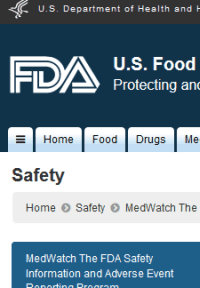A study published this month is sparking debate about whether or not we should even bother paying for common migraine medications. Does a “fake pill” work just as well as the real thing?
Headlines such as “Migraine sufferers benefit from placebos, study shows” may be sending the wrong message. So – migraine is all in their heads after all? People can just “think” their headaches away?
But if you know anything at all about the science of medicine, your reaction is more likely to be – this is news? Really?!
Placebos usually refer to treatments that are thought to be “real” but aren’t. In this case, there’s the common migraine medication rizatriptan and a pill that contains no medicine at all.
It’s no surprise at all that placebos help with a variety of very real conditions – including many pain issues, and even conditions such as congestive heart failure. Well designed studies control for the placebo effect. It’s nothing new at all.
There are positive and negative effects. The nocebo effect happens when a treatment seems to harm someone when they think that it will.
In this particular study, it was found that rizatriptan did work better than a placebo. However, if a patient thought that a placebo was rizatriptan, they did just as well as the patient who thought the rizatriptan was a placebo. Positive and negative impact worked together to level the playing field.
This study certainly shows us again how powerful the placebo effect can be. It does not, however, negate hundreds of studies showing that migraine treatments are usually more beneficial than a placebo.
It should also be noted that the study covered just 6 migraine attacks per person, and so does not say a lot about long term treatment.
What we do want to do is harness the power of the placebo effect. In spite of the fact that most people want their doctors to tell the truth, the truth is that many, many doctors actually do prescribe placebos as if they are “real” medical treatments, knowing that the ruse will often help the patient.
On the more ethical side, most doctors do speak positively about a drug that should help you. “Expecting the best” will increase your odds, no doubt.
So although there is no scientific reason to doubt the power of real migraine medications that have been carefully researched, there is also good reason to continue investigating placebos for all kinds of medical conditions. We may not be able to think our way to a migraine cure, but being positive can make a huge difference.
Study abstract: Altered Placebo and Drug Labeling Changes the Outcome of Episodic Migraine Attacks



